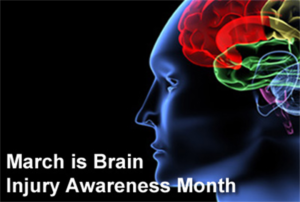 Ask around to see what people think hepatitis is and you’ll probably find out most of us don’t know. Overall, hepatitis is a disease characterized by inflammation of the liver, the largest solid organ and gland in our bodies. We need to keep our livers healthy because they perform over 500 essential tasks.
Ask around to see what people think hepatitis is and you’ll probably find out most of us don’t know. Overall, hepatitis is a disease characterized by inflammation of the liver, the largest solid organ and gland in our bodies. We need to keep our livers healthy because they perform over 500 essential tasks.
In general, livers “clean” out toxins while they help digest food and absorb essential nutrients. Understanding hepatitis in its numerous forms (A, B, C, D and E) is the best way to prevent contracting these potentially fatal diseases.
Estimates show that 30 million travelers a year visit destinations considered high-risk for hepatitis A and B. Both are vaccine-preventable. Hepatitis C and D are usually spread through contact with infected blood. The E form is uncommon in the United States and rarely results in chronic hepatitis, but that doesn’t make it harmless.
World Hepatitis Day is a global effort to raise hepatitis awareness. The Hepatitis Foundation Organization’s site (www.hepatitisfoundation.org) shows you how to prevent, diagnose and treat hepatitis as early as possible. Only through education can we control and eliminate hepatitis altogether.

 Do you know the difference between Alzheimer’s and dementia? Dementia is a general term for mental decline that’s severe enough to interfere with daily life. Alzheimer’s is the most common form of dementia and purple is the official color of the Alzheimer’s movement.
Do you know the difference between Alzheimer’s and dementia? Dementia is a general term for mental decline that’s severe enough to interfere with daily life. Alzheimer’s is the most common form of dementia and purple is the official color of the Alzheimer’s movement. When it comes to arthritis, we tend to think of Grandma trying to get her fingers around her knitting needles or any elderly person struggling with door knobs. But did you know that arthritis, our leading cause of disability, affects 300,000 children?
When it comes to arthritis, we tend to think of Grandma trying to get her fingers around her knitting needles or any elderly person struggling with door knobs. But did you know that arthritis, our leading cause of disability, affects 300,000 children? Project Walk is an activity-based system designed to treat a variety of neurological conditions. These conditions include Brain Injuries, Cerebral Palsy, Multiple Sclerosis, and ALS (Lou Gehrig’s disease). Even children with Spina Bifida have hope through Project Walk’s pediatric program.
Project Walk is an activity-based system designed to treat a variety of neurological conditions. These conditions include Brain Injuries, Cerebral Palsy, Multiple Sclerosis, and ALS (Lou Gehrig’s disease). Even children with Spina Bifida have hope through Project Walk’s pediatric program.